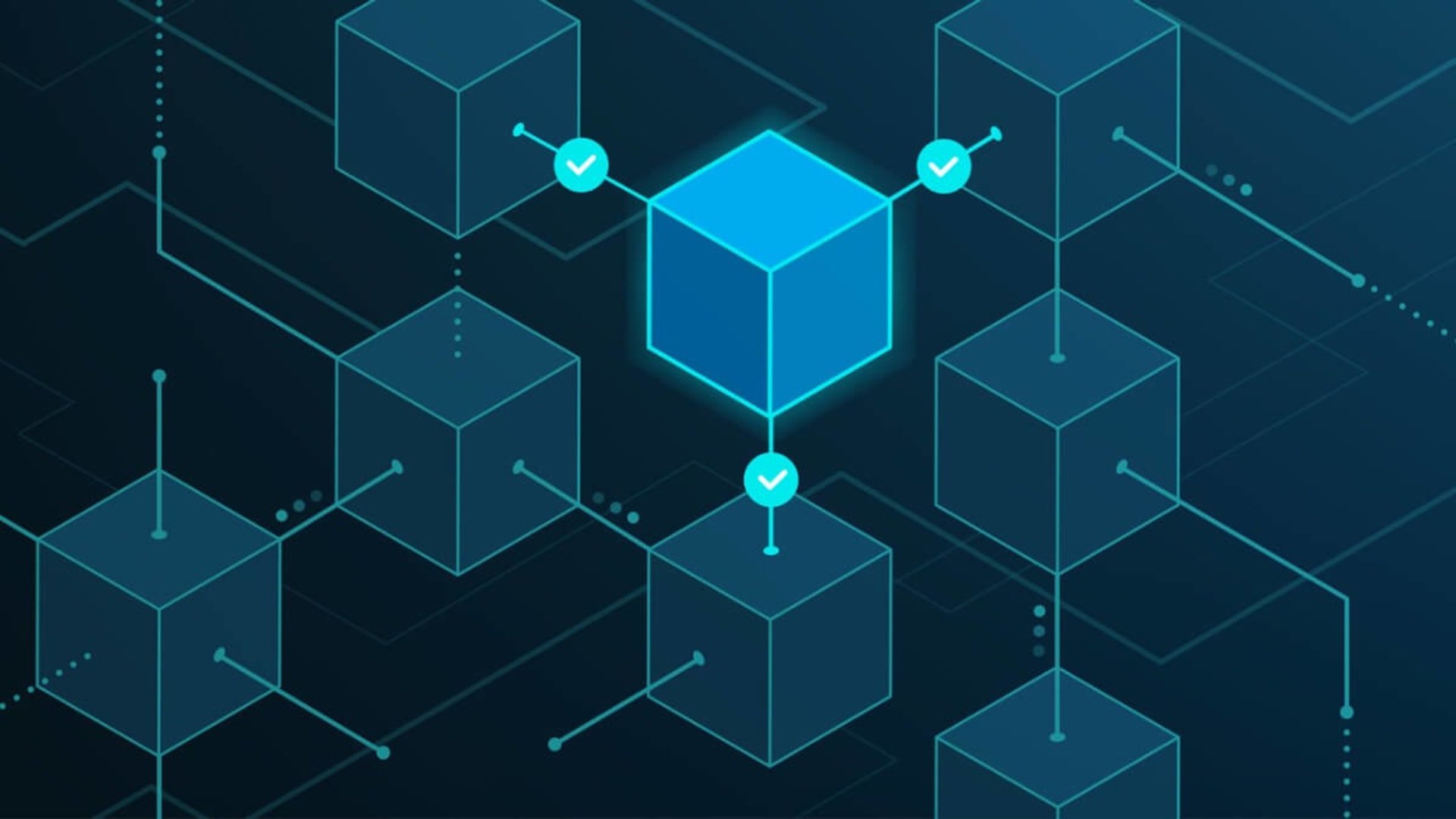- Home
- Technologies
- Blockchain
- Job Description
Blockchain Job Description Template
Hiring Blockchain developers is a challenge. Use this job description template to help you attract top Blockchain talent faster. Want to skip the hassle of recruiting on your own?
500+ companies rely on our top 1% tech talent.
Blockchain Developer Job Description Template
Blockchain technology is revolutionizing industries and becoming an essential skill in software development. Businesses are clamoring to hire blockchain developers to unlock opportunities for innovation in this evolving field.
But your competition also wants to attract talented blockchain developers who bring technical expertise, creativity, and security to your projects. How do you separate yourself from other businesses and recruit the best talent? It starts with an engaging job description.
For 1.5 decades, we've been hiring the top 1% of tech talent. We've honed our recruitment process to identify the most qualified candidates from the 2.2 million+ applications we receive annually. We created this blockchain developer job description template to help you do the same.
In this guide, we’ll cover several sections, including company description, blockchain developer responsibilities, technical requirements, job benefits, and different ways you can hire blockchain developers.
NOTE: The examples we provide below are targeted towards hiring mid to senior-level blockchain developers.
Your Company Description
The company description is your chance to convey why you could be the ideal fit for a blockchain developer—your mission, culture, and values. Remember, the candidate is assessing your company just as much as you're assessing them.
BairesDev is an award-winning software development outsourcing company. Our mission? To provide world-class technology solutions to Fortune 500 companies and startups alike.
Since 2009 we’ve been committed to only hiring the top 1% of tech talent in LATAM. As a remote-first company, we offer candidates flexibility and a greater work-life balance.
Interested in joining our team? We encourage diverse candidates from all backgrounds and experiences to apply.
Job Description: An Overview
This section gives candidates a detailed overview of your expectations for a successful blockchain developer. This is a brief summary of the role that offers a clear and concise summary of the requirements.
We’re seeking an experienced blockchain developer with a finance background to join our team. You’ll be responsible for designing, implementing, and maintaining blockchain-based solutions with security and scalability at their core. You'll collaborate closely with cross-functional teams (including product managers and front-end developers) to deliver high-quality DApps and smart contracts. The successful candidate will have a proven track record of developing blockchain projects in fintech, including cryptocurrency platforms, smart contract systems, and DeFi applications.
Blockchain Software Developer Responsibilities
Blockchain developers play key roles in creating and maintaining blockchain solutions. Their responsibilities encompass diverse tasks aimed at ensuring the security, efficiency, and scalability of blockchain architecture and applications.
Your day-to-day responsibilities:
- Design, implement, and maintain blockchain systems and apps.
- Create and manage dApps on platforms like Ethereum, Binance Smart Chain, and Hyperledger Fabric.
- Develop smart contracts using languages like Solidity and Vyper.
- Protect blockchain solutions from vulnerabilities and threats using tools like MythX, Securify, and SmartCheck.
- Conduct testing and debugging to ensure the reliability and performance of blockchain applications with tools like Truffle, Hardhat, and Ganache.
- Write and maintain documentation for code, APIs, and smart contracts.
- Generate detailed reports on features, updates, and project progress.
- Write and perform unit tests to ensure code quality and functionality.
- Identify, diagnose, and resolve any bugs or potential performance issues.
- Collaborate with backend developers to ensure smooth API integration and compatibility.
- Participate in code reviews to maintain high standards and best practices.
Blockchain Developer Technical Requirements
Here, you'll provide a list of technical skills you're looking for in blockchain engineers. Qualified candidates will have all or most of the technical requirements you’re seeking.
The ideal candidate will have the following skills:
Proficiency in Programming Languages: Knowledge of languages such as C++, Java, Python, JavaScript, and Solidity for writing smart contracts and developing blockchain applications.
Understanding of Blockchain Architecture: A deep understanding of how blockchain networks operate, including consensus algorithms, hash functions, and data structures like Merkle trees.
Cryptography: Familiarity with cryptographic principles, including public-key cryptography, digital signatures, and hashing algorithms for ensuring data security and integrity.
Smart Contracts: Expertise in creating and deploying smart contracts, particularly on platforms like Ethereum.
Web Development: Knowledge of web development, including HTML, CSS, and JavaScript, for creating user interfaces that interact with blockchain applications.
Data Structures and Algorithms: Strong foundation in data structures (e.g. linked lists, hash tables) and algorithms to optimize the performance and efficiency of blockchain solutions.
Distributed Systems and Networking: Understanding of how distributed systems work and how networks communicate.
Security Best Practices: Knowledge of security protocols and best practices to protect blockchain networks and applications from vulnerabilities and attacks.
Blockchain Developers: Ideal Experience, Background, and Soft Skills
In the soft skills section, you’ll share the interpersonal skills you're looking for in a blockchain developer. You can also share the level of experience and educational background you’d like to see in candidates.
We’re seeking a growth-oriented professional who meets the following criteria:
- Education: Bachelor's degree in Computer Science, Engineering, or a related field
- Experience: 3+ years experience in blockchain development in the fintech space
- Interpersonal skills: Excellent problem-solving skills, attention to detail, and experience working in a team environment
Attractive Job Benefits for Blockchain Developers
The benefits section of a job posting will differ across organizations, but it’s always important to highlight your key perks. Benefits help attract top talent who care about company culture and the support they’ll receive in their careers at your company.
This section should emphasize both monetary and non-monetary benefits. That will give candidates a clear picture of what makes your company a great place to work (and how they can achieve a healthy work-life balance at your company). It also offers insight into your company culture, helping prospective candidates picture themselves working there.
Below is a list of potential benefits to offer blockchain developers. Use these benefits to brainstorm other perks that will help you attract skilled blockchain developers. Select relevant ones to include in your blockchain developer job description (or create your own).
Professional Development:
- Allowance for blockchain courses, certifications, and in-house training.
- Paid subscription to learning platforms (e.g. Pluralsight, Egghead).
- Tuition reimbursement for advanced degrees or related courses.
- Opportunities to attend/speak at tech conferences and meetups.
- Dedicated time for open-source contributions and personal blockchain projects.
Work Environment & Flexibility:
- Flexible working hours.
- Remote work setup stipend (e.g. ergonomic chairs, monitors).
- Casual dress code, especially for remote work.
- Hardware and software stipends, including top-tier machines and the latest licenses (e.g. IDEs).
- A choice between co-working spaces or home office setups for remote workers.
- "No meetings” days, ensuring uninterrupted coding sessions.
Team Collaboration & Growth:
- Collaborate with and learn from senior blockchain developers.
- Leading exciting projects and adopting mentorship roles.
- Team events, like monthly hackathons.
- Company-wide recognition for innovative solutions and coding excellence.
- Weekly peer review sessions to ensure code quality and continuous learning.
- Dedicated "innovation days" where developers can work on any creative project they choose.
Wellness & Work-Life Balance:
- Unlimited paid time off OR 10 paid vacation days per year.
- Employee discounts on tech gadgets and software.
- Mental health days.
- Fitness stipend or gym membership reimbursement.
- Annual subscription to wellness apps and monthly meditation classes.
Financial & Long-term Benefits:
- 401(k) or pension plans.
- Health, dental, and vision insurance.
- Relocation assistance if joining a main office.
- Stock options or equity for long-term employees.
- Bonus structure based on project completion or company performance.
- Childcare assistance or family support programs.
Different Ways to Hire Blockchain Developers
You'll be responsible for recruitment and onboarding costs, along with salary and benefits. Hiring an ideal blockchain developer could take months. In addition, you’ll need experience in technical recruitment to narrow down the best candidates. On the plus side, an in-house blockchain developer would be more integrated with your company culture, values, and long-term vision. This means they’re more invested in your company’s future success.

Many companies hire a dedicated development team through an outsourcing provider. A dedicated team includes a range of talent, from software developers to product managers, UX designers, DevOps, project managers, and more. This option is more cost-effective than building an in-house team from scratch. Businesses can leverage top nearshore talent where the cost of living is lower than in the US.
Staff augmentation services are ideal for businesses with existing software development teams. Get additional support or access specialists. In this model, Blockchain developers join your in-house team, working with your employees and reporting to your managers.
Software outsourcing is the most comprehensive model we offer. We will build an entire team with all the roles you need, including a project manager and Scrum master to oversee the project. You will have time to focus on your core business while we develop your software from concept to completion.
Frequently Asked Questions
What are the primary responsibilities of a blockchain developer?
Blockchain developer job responsibilities include designing blockchain networks, creating smart contracts, and maintaining DApps. Developers also integrate blockchain technologies with existing systems and optimize security and performance.
What skills are required for effective blockchain system development?
Blockchain system development requires skills like proficiency in Solidity, JavaScript, and Python. It also demands knowledge of blockchain platforms, blockchain protocols, cryptography, and consensus algorithms.
How does a blockchain network differ from traditional network systems?
A blockchain network differs from traditional network systems in that it records transactions across multiple nodes. This helps confirm transparency and security. Traditional network systems are centralized and require intermediaries to handle transactions. This is not true of blockchain networks, where intermediaries aren't necessary.
Why is blockchain important in modern software development?
Blockchain system development is important because it enhances security, efficiency, and transparency. Through this process, developers create tamper-proof systems and support innovative apps.
- Blockchain Job Description Template
How Businesses Can Overcome the Software Development Shortage
BairesDev Ranked as one of the Fastest-Growing Companies in the US by Inc. 5000

See how we can help.Schedule a Call










